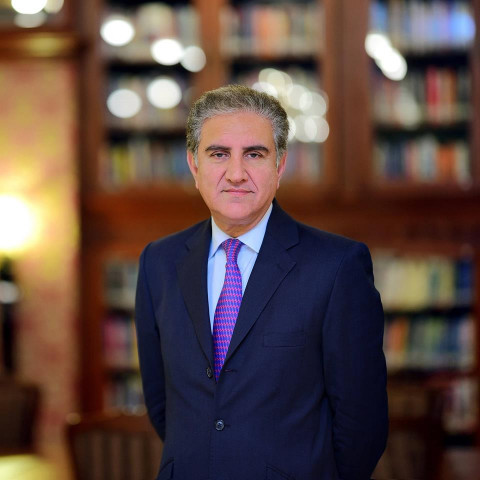Modi govt resorts to warmongering for short-term gains: FM Qureshi
India presents a clear danger to regional stability and Pakistan’s security, says the foreign minister

Foreign Minister Shah Mehmood Qureshi. PHOTO: PID
Speaking at the Air University in Islamabad, the foreign minister underscored that New Delhi’s hegemonic pretensions presented a “clear danger to regional stability and Pakistan’s security”.
He said India had refused to engage in dialogue, rejected proposals aimed to reduce risk, build confidence and exercise restraint in nuclear and missile matters.
Stressing that Islamabad wanted peace and strategic stability to ensure socio-economic development, Qureshi said Pakistan’s actions were defined by the restraint and responsibility the country showed by avoiding an arms race.
“However,” he warned. “We cannot remain oblivious to the security dynamics in our immediate neighbourhood.”
The foreign minister said the August 5 decision of the Modi government to abrogate Article 370 thereby revoking the special autonomy granted to Indian Occupied Kashmir (IOK) violated United Nations Security Council resolutions.
Furthermore, he condemned the information and communication lockdown in the occupied region.
“The inhuman lockdown of eight million people continuing for over 70 days is imposing unspeakable sufferings on the people of Indian occupied Jammu and Kashmir,” he said, adding that Pakistan will continue to stand by Kashmiris in their just struggle for the realisation of the right to self-determination.
On Pakistan’s ties with Afghanistan and China
FM Qureshi reiterated Pakistan’s push for the Afghan reconciliation process. “We have supported all rounds of Afghan peace talks in Doha and Abu Dhabi. We hope that the US-Taliban talks recommence and lead to intra-Afghan negotiations.”
The foreign minister also reaffirmed China as the country’s “closest friend and steadfast partner”. He further said Islamabad proposed more projects for Chinese investment that can rejuvenate and consolidate the economy.



















COMMENTS
Comments are moderated and generally will be posted if they are on-topic and not abusive.
For more information, please see our Comments FAQ